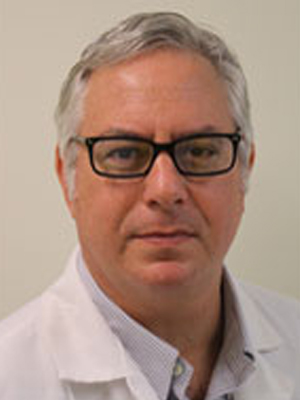
Designed to be as inclusive as possible, this year’s Basic Science track at the ACR/ARP Annual Meeting will provide updates on topics that are well known to the audience and also introduce newly emerging topics in basic science that will appeal to both practicing rheumatologists as well as scientists and others seeking to understand these new perspectives in rheumatic disease.
“We have quite a responsibility, so we tried to be as broad and in depth as possible, and we also want to inform the attendees about new ideas,” said Basic Science Subchair Gregg Silverman, MD, Professor of Medicine and Pathology at the New York University School of Medicine, who pinpointed several highlights from this year’s Basic Science track.
- Mechanisms of Cannabinoids in Pain Management (9:00 AM Tuesday, Nov. 12) — Providing a thorough review of the science behind cannabinoid pain therapy, including the latest clinical trial results, this hot button topic is an exciting one for rheumatologists, Dr. Silverman said. “There’s interest about these chemical compounds, related to marijuana, and whether they provide new approaches to treat the signs and symptoms of arthritis? Are formulations, such as CBD, good for pain control and should we recommend them for our patients? The research is expanding dramatically and we’re just trying to figure out where in our armamentarium, and for which patients, can cannabinoids be the most effective and a safe approach.”
- Resolving Inflammation in Autoimmune Disease (2:30 PM Sunday, Nov. 10) — Several speakers will look at the lipid mediators that are involved in inflammation and resolution of inflammation and the role of a more recently identified cytokine, IL-9, in resolving arthritis and inflammation. “We are learning that maybe the problem is not just the induction of inflammation, but that there may be problems with the normal regulatory pathways for resolving inflammation,” said Dr. Silverman.
- Adverse Outcomes of Cancer Immunotherapies (8:30 AM Sunday, Nov. 10) — This session will offer the latest insights into the clinical manifestations of immune-related adverse events associated with cancer immunotherapies. Experts will discuss the molecular pathogenesis and tools that aid early diagnosis and treatment, as well as the shared mechanisms and the relationships with primary autoimmune diseases.
- Immunology Update: Type I Interferon SLE: Causal Factor, Biomarker or Therapeutic Target? (4:30 PM Tuesday, Nov. 12) — Speakers will address whether Type 1 interferon is a biomarker of lupus, a bystander signature, or is driving the disease itself. “One of the latest agents in development for treatment of lupus, anifrolumab, was designed to block receptor binding of type 1 interferon. While this pathway looked very good in phase two trials, this agent failed to meet its endpoint in the first reported phase 3 trial. However, recently results from a second phase 2 trial showed this agent met all of its predetermined endpoints! Speakers in the session will consider whether there was a problem with study design, or differences in the patient cohorts enrolled? In addition, we wonder whether this antibody based agent itself is powerful enough, or whether we need to rethink our understanding of the role of type I interferon in lupus in general?” said Dr. Silverman.
- New Tools to Visualize Autoimmune Tissue Targets (11:00 AM Tuesday, Nov. 12) — “These technologies are reforming our understanding of diseases like lupus and how pathogenesis affects the kidneys and the joints, and understanding the difference between events involved in flares the disease as opposed to what keeps it going over time,” said Dr. Silverman.
- Immunology Update: Neutrophils, Multi-Armed Primitive Warriors (7:30 AM Monday, Nov. 11) — This session is designed to raise awareness of recent advances in the science of neutrophils. Neutrophils, which are the most abundant white cells in the circulation, are rapidly recruited to sites of tissue inflammation, where they perform diverse and essential functions.
- Accelerating Medicines Partnership (AMP): Molecular Deconstruction of RA Symposium (1:00 PM Monday, Nov. 11) — One of the key sessions that will focus on single cell technologies that have emerged from the Accelerated Medicine Partnership (AMP), a joint venture between the NIH and industry that seeks to shorten the translation time between basic discoveries and insights that will inform clinical practice in the future, this session will focus on RA and data from Phase 2 studies of more than 100 patients, that highlight abnormalities in immune- and tissue-resident cell populations emerging from single cell gene expression (RNA sequencing) studies using new methods and the latest instruments.
- Accelerating Medicines Partnership (AMP): Leveraging of Single Cell Tech for Insights into Lupus Nephritis (2:30 PM Monday, Nov. 11) — In another AMP-related session, attendees will discover new molecular insights into the pathological basis of SLE that may better stratify patients, identify biomarkers for prognosis and treatment response, as well as reveal new pathways and targets for drug development.
